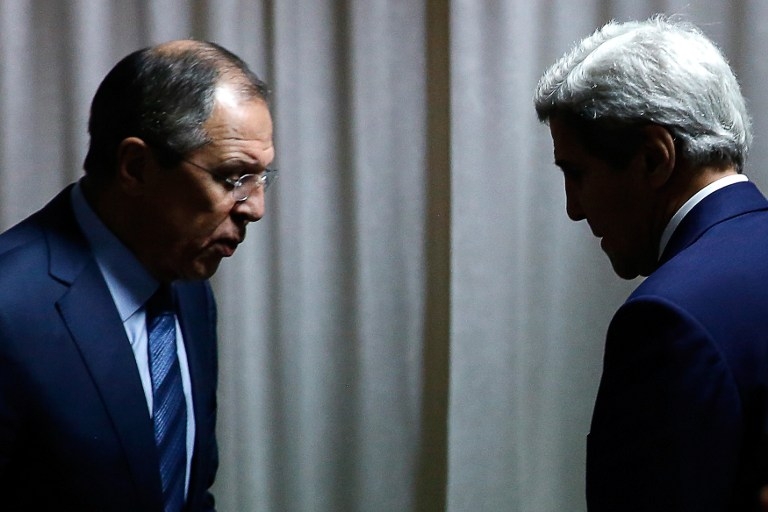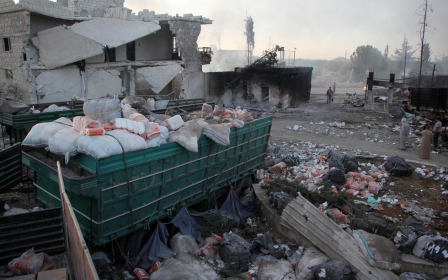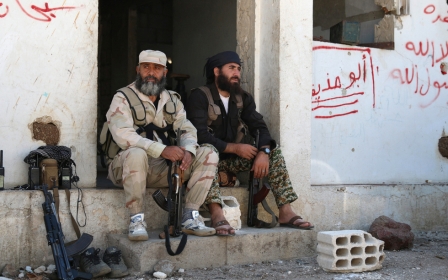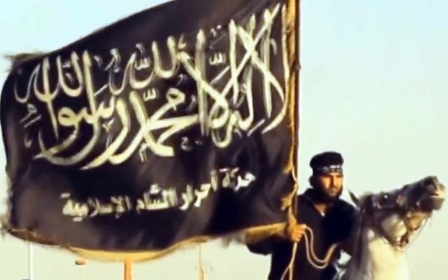Emergency international meeting to reinstate Aleppo ceasefire fails

The United States and Russia convened a last-ditch meeting to save their Syria ceasefire plan on Thursday as an intense bombardment left the city of Aleppo in flames.
However, the high-level international meeting on the crisis quickly broke up without agreement on a way to revive a collapsed US and Russian-brokered truce.
US Secretary of State John Kerry said his Russian counterpart had not been able to promise to ground Syria's bombers and to halt the bombardment of its cities.
The 23-nation International Syria Support Group (ISSG) was to decide if it is worth trying to revive a shaky truce that collapsed on Monday amid bitter diplomatic recriminations.
UN peace envoy Staffan de Mistura said the ISSG would not be meeting again if there was no chance of progress, but diplomats were careful to play down expectations.
"You are radiating what I think is a legitimate pessimism," Britain's Foreign Secretary Boris Johnson told reporters before heading to the New York hotel.
Earlier, Kerry had said: "It's going to be difficult. We'll see what people are willing to do."
Syrian President Bashar al-Assad has denied his forces are besieging the rebel-held areas of Aleppo, stating that "people would be dead by now" and insisting they had "everything" they needed.
Assad's comments came in an interview with the AP news agency, released after a night of intense bombardment that left a reported 45 people dead, and fires raging across rebel-held areas.
Assad, whose forces earlier this week resumed hostilities after the failure of a US-Russian agreed ceasefire, said: "If there really is a siege around Aleppo, people would have been dead by now.
"They [the rebels] have been shelling neighbouring areas and Syrian army for years, non-stop shelling... how could they be starving while at the same time have armaments? How can we [the government] prevent the food and medical aid from reaching that area when we cannot stop the armaments reaching the area?"
Previous attempts at a ceasefire
On 9 September, Kerry and Lavrov met in Geneva and agreed to call a ceasefire, with Moscow responsible for forcing Syrian government forces to stand down.
The US was to pressure opposition rebel forces to obey the truce, but both sides cried foul, and on Monday this week the Syrian army declared the ceasefire over.
Diplomats believe the US-Russian Geneva process is the only available hope to end the five-year conflict, but Moscow and Washington have fallen out spectacularly.
Russia says Kerry failed to deliver a rebel ceasefire, and was furious when US-led coalition warplanes bombed a Syrian base, killing more than 60 Syrian soldiers, a strike Washington says was an error.
Washington in turn accused Russian jets of carrying out a deadly strike on a UN aid convoy on Monday, and Kerry and Lavrov exchanged angry words at the Security Council.
"I listened to my colleague from Russia and felt a little bit like we are in a parallel universe," Kerry declared on Wednesday after Lavrov tried to blame the rebels.
Kerry told the UN council that the only hope of reviving the ceasefire would be for Russia to order the Syrian government to ground its air force and stop hitting civilian targets.
The sparring partners met twice overnight ahead of the ISSG meeting to try to move their positions closer, but US officials cautioned against hope of a new deal.
Indeed, on the ground the situation continued to worsen, as huge blazes erupted in the besieged city of Aleppo as fighting and air strikes raged through the night.
Aleppo on fire
An AFP correspondent in the eastern Bustan al-Qasr neighbourhood reported that his entire street was in flames following the pre-dawn strikes.
Volunteer firefighters battled to contain the blazes, which local activists at the Aleppo Media Centre said were caused by "incendiary phosphorous bombs".
In footage posted by the group, a ball of flame shoots up over the city, lighting up the skyline.
The Syrian Observatory for Human Rights said strikes on the rebel-held neighbourhoods of Bustan al-Qasr and Al-Kalasseh "led to massive fires".
Observatory head Rami Abdel Rahman said raids by Russian warplanes on Thursday killed 13 people, including three women, in the city.
"The non-stop strikes last night were so violent I can't even describe them," said Ibrahim Abu al-Leith of the White Helmets, a Syrian group of emergency responders, which operates mostly in rebel-held areas.
Residents of east Aleppo have been living under government siege since early September.
Food aid promised for them under the US-Russia deal has been stalled at the border since last week.
New MEE newsletter: Jerusalem Dispatch
Sign up to get the latest insights and analysis on Israel-Palestine, alongside Turkey Unpacked and other MEE newsletters
Middle East Eye delivers independent and unrivalled coverage and analysis of the Middle East, North Africa and beyond. To learn more about republishing this content and the associated fees, please fill out this form. More about MEE can be found here.




